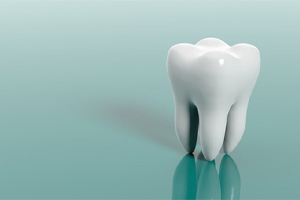
Tooth Extractions – Needham, MA
Gentle Extractions to Promote Long-Term Oral Health

We make every effort to help our patients retain their natural teeth for a lifetime. In some cases, however, that simply is not possible. If a tooth is too damaged to repair, or other circumstances make removal necessary, we perform gentle extractions to promote a patient’s long-term oral health. Afterward, we may be able to offer a tooth replacement solution. Read on below to learn more about this common emergency dentistry procedure.
Why Choose Gillis Dental for Tooth Extractions?
- Recommended Only as a Last Resort
- Sedation and Anesthesia Promote Patient Comfort
- State-of-the-Art Tooth Replacement Available
Reasons Why Tooth Extractions Are Necessary

We might recommend tooth extractions under the following circumstances:
- A tooth is so badly damaged or decayed that it cannot be restored via more conservative means.
- A wisdom tooth is threatening the health of the teeth around it.
- We must make more room in the mouth for dentures or orthodontia.
- One of a child’s baby teeth did not fall out in a timely manner, and it is impeding the development of incoming adult teeth.
- Gum disease has made it difficult for a patient’s mouth to adequately support their teeth.
- We must remove a tooth to stop an infection from spreading.
The Process of Removing a Tooth

If your extraction is going to be a relatively simple procedure, we will numb the area and use forceps to grip the tooth. We will then gently rock the tooth back and forth in order to break the ligaments that attach it to the surrounding bone. After the tooth is out, we will use gauze to control any bleeding. For non-surgical extractions, the average recovery time is only a few days.
If a tooth is impacted (stuck beneath the gum line), the extraction will take longer and be a more complex procedure. We will take every measure possible to ensure a comfortable appointment and smooth recovery for you.
Following your extractions, we will discuss tooth replacement options if appropriate for your circumstances.
Tooth Extraction Aftercare

Here are some tips to help you enjoy a smooth recovery after your tooth extraction procedure:
- Take all medications as recommended by our team.
- Stay away from hard, sticky, and crunchy foods.
- Keep your head propped up on pillows when you are resting.
- Do not smoke.
- Do not use drinking straws.
- Avoid strenuous physical exertion.
- After the first 24 hours, start regularly rinsing your mouth with warm salt water.
- Do not touch your extraction site with your tongue, fingers, or even your toothbrush until it is fairly well-healed.
- Attend all follow-up appointments with our team. Replacing your tooth in a timely manner can prevent complications like dental drift and future tooth loss.
Understanding the Cost of Tooth Extractions

Just like any dental procedure, the cost of tooth extractions for Needham patients is not universal. It is based on a variety of factors. During your emergency consultation, we will be able to provide specific numbers for you. We can also help you explore options that may make it easier for you to fit your care into your budget. For example, you might be eligible for financing or be able to use your dental insurance policy.
Factors That Can Affect Tooth Extraction Cost

There are a number of factors that can have an influence on the cost of tooth extractions:
- The specific tooth that needs to be extracted. Some teeth are more challenging to remove than others and therefore incur higher fees. This is often true of wisdom teeth.
- The number of teeth that need to be removed. Logically, removing one tooth comes with a lower cost than removing several.
- The overall complexity of the case. We can perform most extractions right here in our dental office. If we must refer you to an outside specialist for a particularly complex surgical extraction, the total cost of your care may be increased.
- Additional services. Your extractions may be part of an overall treatment plan. Your total financial obligation depends greatly on the other procedures, such as tooth replacement, that you need.
Does Dental Insurance Cover Tooth Extractions?

Yes, it is quite common for dental insurance to cover tooth extractions. Simple extractions are usually categorized as a minor service, meaning that up to 80% of their cost may be covered. More complex extractions are generally considered to be a major service and might be covered at just 50%. Our practice accepts many types of dental insurance; we will be happy to help you understand how your benefits apply to your situation. We will also file all claims on your behalf.
Other Options for Making Tooth Extractions Affordable

Insurance is just one provision that may make it easier for you to afford your tooth extractions. Additional resources that you might be able to use include:
- The Essential Dental Plan. The Essential Dental Plan is designed for patients without insurance. Signing up is a quick and easy process, and you can enjoy discounted fees on virtually all the services available at Gillis Dental.
- Most patients are eligible for low-interest financing through CareCredit. The application takes just a few minutes, and you may be able to choose a monthly payment amount that works well with your family’s budget.
Are you curious to learn more about tooth extractions and their cost? Our team is prepared to answer your questions. Get in touch with us today to schedule an appointment.
Tooth Extractions FAQs

The talented team at Gillis Dental is ready to help you with your tooth extraction needs. Before you book a consultation, though, it is understandable if you would like to gather more information. To assist you, we have compiled the answers to some FAQs about this procedure. If your specific questions are not addressed here, get in touch with us directly. We are looking forward to speaking with you!
Does Getting a Tooth Extracted Hurt?
We want our patients to be as comfortable as possible during their extractions. That is why we use plenty of local anesthetic. In some cases, we also use sedation to help patients enjoy a calm, relaxing experience.
After any anesthesia and sedation wear off, you are likely to experience some soreness and swelling. If you carefully follow our posttreatment instructions, such symptoms should wear off fairly quickly. Most patients are back to feeling normal within a few days to a few weeks.
Is There an Alternative to a Tooth Extraction?
In many cases, tooth extractions can be prevented with excellent oral hygiene or restorative procedures, such as root canal therapy. However, if the damage to a tooth is extensive, or advanced gum disease is present, an extraction is likely the only option.
Our team carefully considers all treatment possibilities before we make any recommendations. If we advise you that tooth removal would be best for you, we will do so only after we are fairly certain that more conservative measures would not be adequate for your satiation.
What Are My Options for Replacing a Missing Tooth?
There are a few different ways to replace a missing tooth:
- Dental implant. An implant is a prosthetic tooth root, which gets topped with a lifelike crown. We usually prefer this as the most reliable, strongest, and longest-last method of tooth replacement.
- Fixed bridge. A fixed bridge relies on the nearby teeth for support. It can be a sturdy and aesthetically pleasing way to fill in a gap in your smile.
- If you have several missing teeth, a removable denture might be the most cost-effective way to replace your lost dentition.
Can I Leave the Space Empty After a Tooth Extraction?
If you get a wisdom tooth or supernumerary (extra) tooth removed, then it is fine not to replace it. In almost all other cases, though, tooth replacement is strongly recommended. If you do not replace a lost tooth in a timely manner, your oral health could suffer. For example, the nearby teeth may drift out of place, leading to a misaligned bite. Often, the loss of one tooth increases the risk of future tooth loss. Your jawbone will also begin to deteriorate.
Additionally, many people feel self-conscious about having an incomplete set of teeth, even if their missing tooth is toward the back of their mouth.